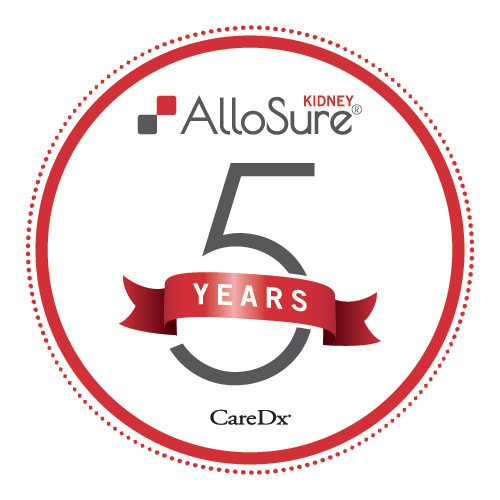AlloSure is a simple blood test for kidney transplant organ health.
Developed specifically for transplant patients, AlloSure is a blood test that analyzes SNPs selected across all 22 somatic chromosomes to detect DNA released from a patient’s kidney allograft, known as donor-derived cell-free DNA (dd-cfDNA).
What is donor-derived cell-free DNA?
Cell-free DNA is fragments of DNA in the bloodstream that originate from cells undergoing injury and death. AlloSure can quantify increasing levels of dd-cfDNA, serving as a leading indicator of graft injury.
























